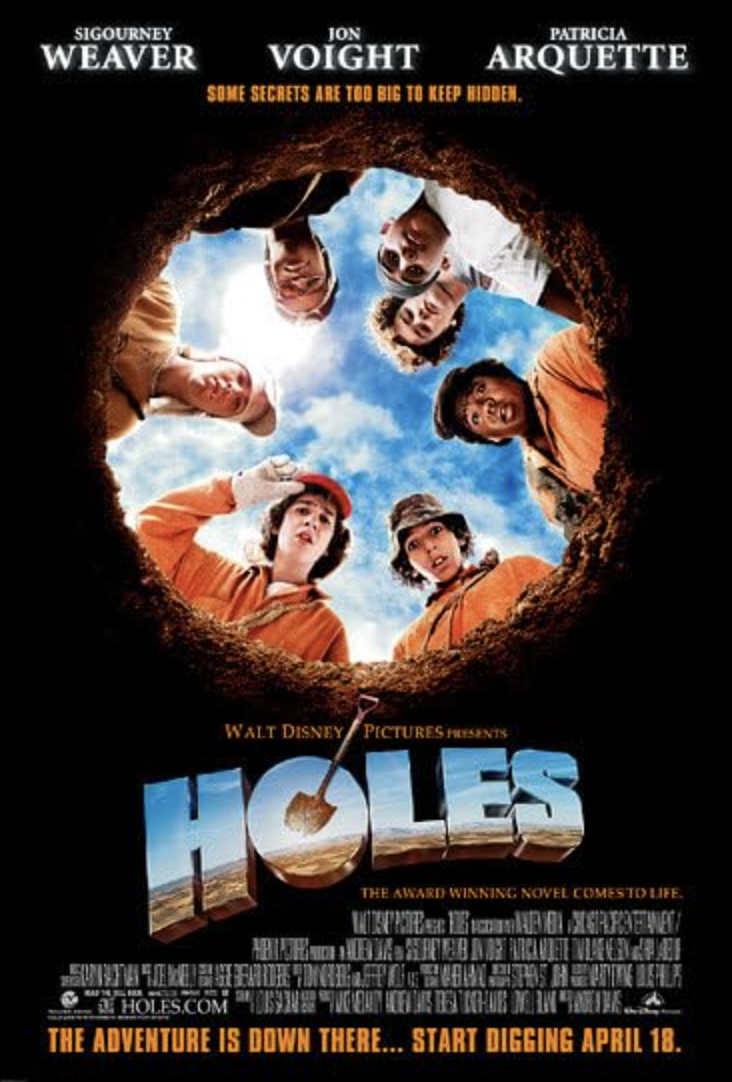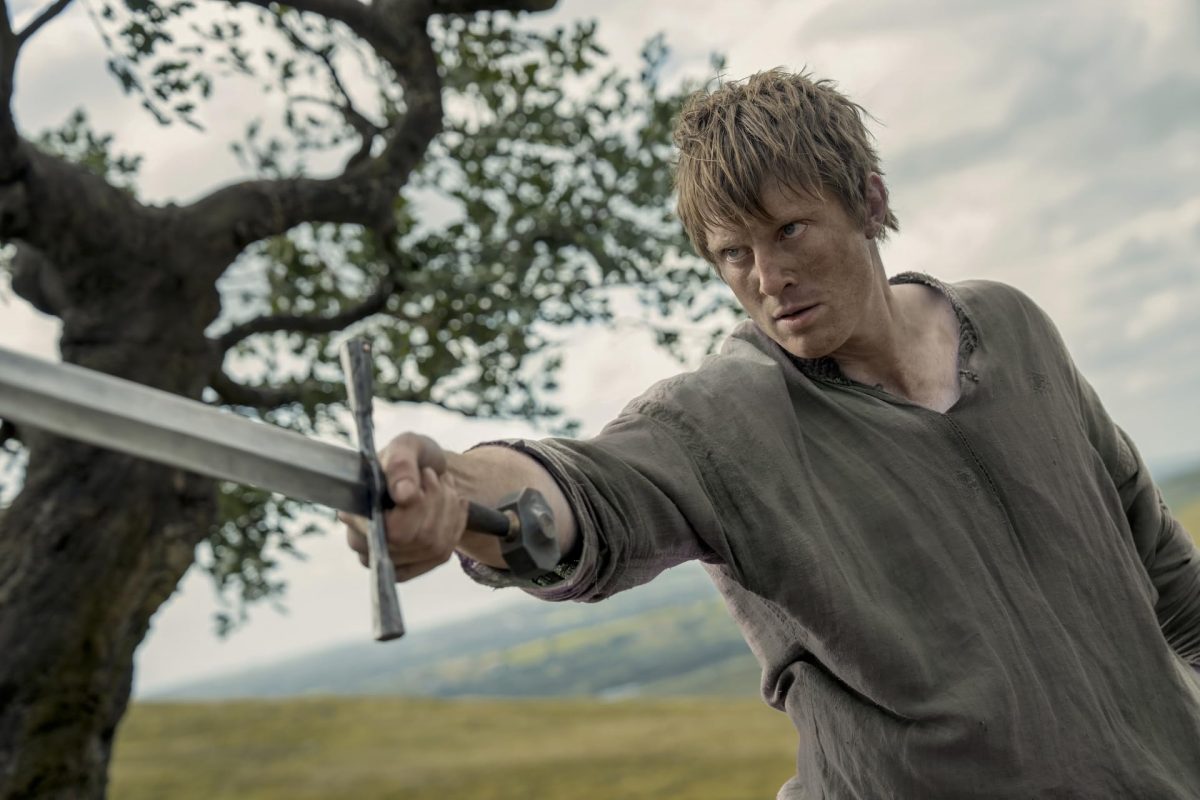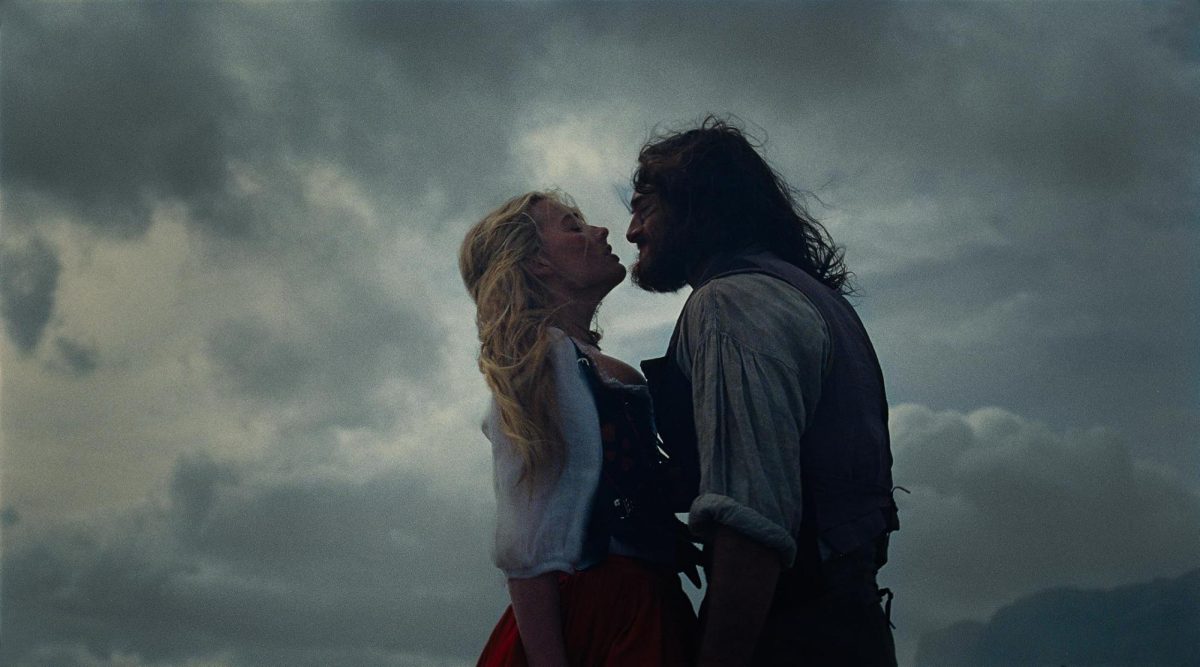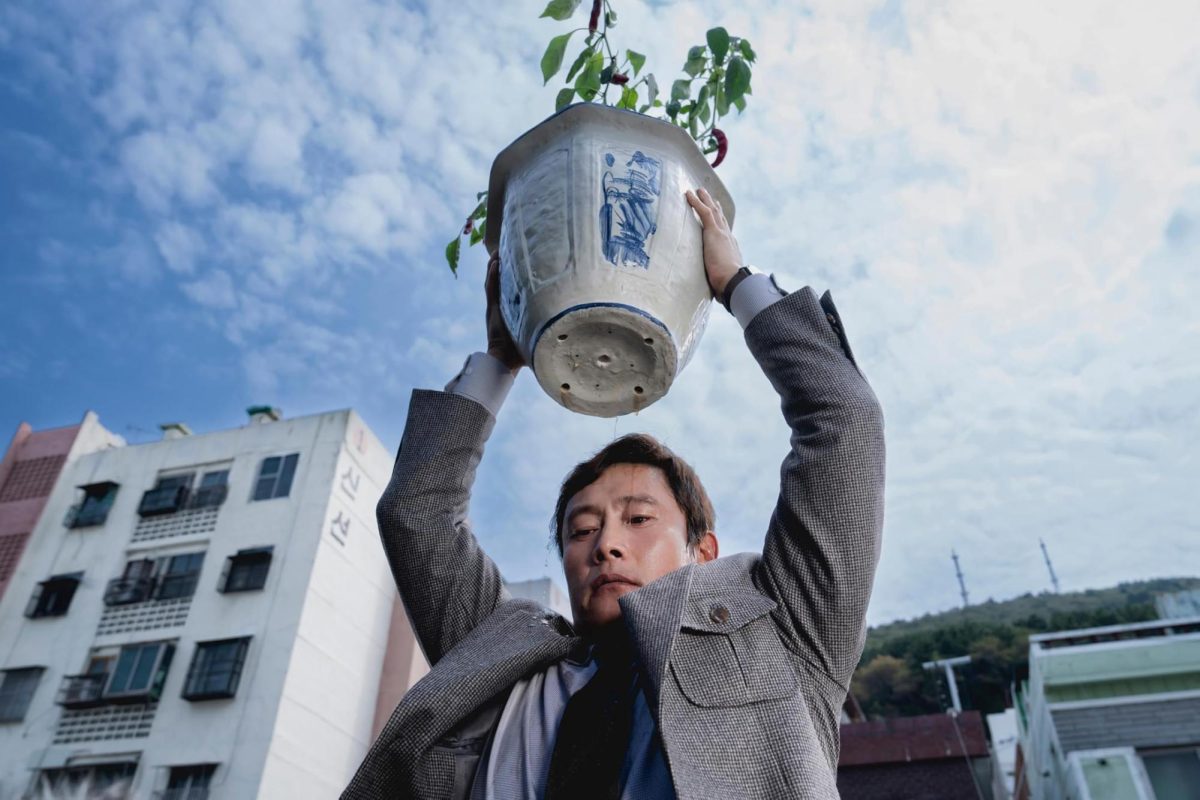“Holes,” released 20 years ago in 2003, is a Disney film centering around Stanley Yelnats IV, a cursed teenager who mistakenly gets sent to a rehabilitation “camp” in the middle of the desert.
The movie is based on Louis Sachar’s book of the same name.
To build his personal character at the camp, Yelnats is told to dig a five-foot-deep hole every day. It’s later revealed that Yelnats — and the rest of the boys at the camp — are unknowingly digging holes to find the treasure of Kissin’ Kate Barlow, a wild-west serial killer.
This movie is kind of ridiculous to watch as an adult, but it’s still enjoyable.
In the first half of the movie, several storylines play out seemingly without connection.
Get The Daily Illini in your inbox!
The story primarily follows Stanley and his time at Camp Green Lake with Zero, another camper, but also features three flashbacks: A love story between a schoolteacher and a sweet-talking handsome onion salesman, the wild west murders of Kissin’ Kate Barlow, and how Stanley’s no-good-dirty-rotten-pig-stealing great great grandfather got the Yelnats family cursed.
The best part of “Holes” is how it connects seemingly unrelated storylines into a single cohesive story. Spoiler alert — the schoolteacher becomes Kissin’ Kate Barlow after her onion boyfriend is killed and the woman that curses Stanley’s great great grandfather is Zero’s great great great grandmother. Oh, and Zero is the reason Stanley ended up at Camp Green Lake.
“Holes” uniquely boasts peaches, onions, deadly lizards, shoes and a few other inanimate objects as symbols and plot devices. It’s almost an object-driven story, as opposed to the typical character-driven tale.
Another strength of the movie is the well-cast group of boys Stanley encounters at Camp Green Lake. With nicknames like ZigZag, Armpit and Magnet, the rag-tag group plays very well off each other.
However, the part of the plot that stands out the most is, by a very long shot, Zero. Real name Hector Zeroni, he is a young teen that grew up living in a lot of places and then living nowhere at all. He explains that it was just him and his mom, then one day his mom didn’t come back.
Hearing his story is heart-wrenching. He doesn’t seem to have ever attended school and he can’t read.
And the way he’s treated by the rest of the camp, especially the not-an-actual-doctor counselor Pendanski, is nothing short of infuriating. At one point, Pendanski explains why Zeroni is called Zero, saying it’s because there’s nothing going on in his little head.
Pendanski is an incel piece of garbage who seems to be every -ist and -phobic possible, but the way he talks to Zeroni like he’s nothing is genuinely upsetting.
It’s one of the only serious plotlines in the movie. It shows the ugly side of power trips and how easy it is to gang up on someone deemed “lesser” than you.
Something not many children’s films have done, “Holes” humanizes a homeless teenager in Zero. Zeroni’s story hurts to watch, showing the audience that everyone is human and no one deserves what Zeroni had to go through.
The film also highlights issues with the American disciplinary system. The boys working in the camp are dehumanized and mistreated, as they are forced to wear identical clothing and sometimes not allowed to shower.
Pendanski further disrespects the boys by refusing to call them the nicknames they choose for themselves.
Zeroni shows defiance to the system on multiple occasions, saying that he “likes digging holes” and even running away later in the film. His refusal to adapt earns him extra mistreatment from Pendanski, who repeatedly ridicules him for being unable to read.
Staff members at the camp, such as Pendanski and the assistant to the warden Mr. Sir — notably both white men — act as though no rules apply to them. Sir openly tells the boys that “there’s only one law around here, and that’s me.”
Where the film parts from reality is the happy ending — justice is served as Pendanski and Sir are both imprisoned for helping run the unethical camp.
Along with spotlighting some bigger societal issues, “Holes” also brings some progressive themes into play. Women hold most primary positions of power in the film, such as Warden Walker, who runs the prison camp, and Barlow, a murderer who serves as the nemesis of the Walker family.
All things considered, “Holes” is actually a halfway-decent movie. It balances comedy well with a unique plot and serious topics. The acting is good, if a little absurd at times, and the soundtrack is really, really good.
“Holes” stands the test of time.








